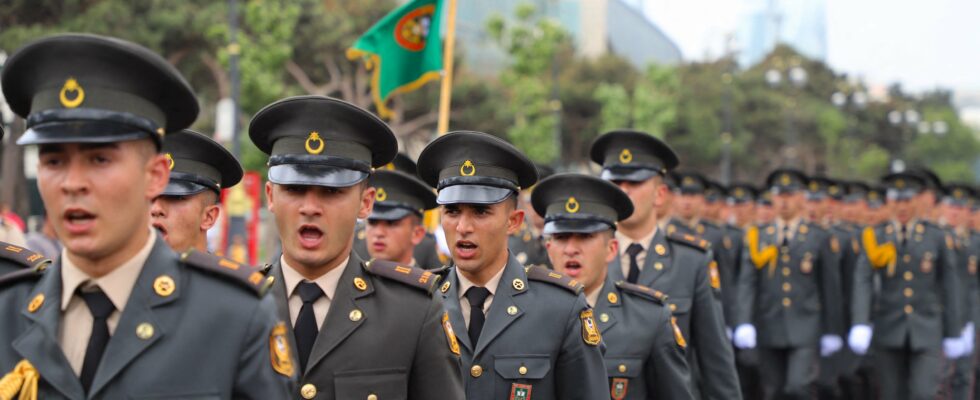4,000 troops, warships, aircraft, artillery and tanks: On Tuesday, July 9, Central Asian countries launched a series of joint land, sea and air military exercises, scheduled to run until July 17 in the Caspian Sea, in the Kazakh province of Mangystau. Called Birlestik-2024, meaning “alliance” in Kazakh, the exercise brings together four Central Asian countries, namely Kazakhstan, Kyrgyzstan, Tajikistan and Uzbekistan, according to Kazakhstan’s Deputy Defense Minister Lieutenant General Marat Khusainov (quoted by the Tajikistan News Agency Asia Plus), as well as Azerbaijan.
The various armies intend to strengthen their cooperation, while the region is in the grip of a resurgence of military tensions (due to the conflict between Russia and Ukraine, or the recent war between Azerbaijan and Armenia in Nagorno-Karabakh), and faces growing interest from the major powers, as a strategic crossroads.
According to Agence France Presse, the Kyrgyz Defense Ministry specified that this exercise will consist, for the soldiers, of “liberating an island captured by terrorists” and “conducting operations to ensure security at sea and the protection of infrastructure”. The images communicated by the Defense Ministry of Azerbaijan give an idea of the scale of the maneuvers, “the first of this kind” between these five former Soviet republics.
No Chinese or Russian participation
China and Russia did not take part in this operation, despite regular exercises with these Central Asian countries within the framework of the Shanghai Cooperation Organization (SCO) or the Collective Security Treaty Organization (CSTO). The last military exercises organized under the banner of the latter in Central Asia in the fall of 2023 brought together 1,500 military personnel.
According to Times of Central Asiaa meeting also took place last July between the armies of Uzbekistan and Azerbaijan in Tashkent (Uzbekistan) within the framework of “a joint command and staff exercise called UZAZAZ-2023. The aim of the meeting was, according to a joint statement, the organization and conduct of special operations of the troops to limit, weaken and destroy illegal armed formations.”
Tensions rising again
After nearly three decades of tensions and, at times, conflicts, the Central Asian republics have significantly accelerated their cooperation in recent years. And for good reason, the neighboring Caucasus region has remained “alongside Ukraine and the Middle East, a highly flammable region” in the global geopolitical arena, as evidenced by the recent Nagorno-Karabakh conflict, noted Christophe-Alexandre Paillard, a senior civil servant and lecturer at Sciences Po Paris, in a recent article for review Diplomacy.
“This region is rich in metals and is the transit point for gas and oil pipelines bringing resources from the Caucasus, the Caspian and Central Asia to the Mediterranean and the Black Sea,” increasing the renewed interest of the major powers.
“The repeated wars (Ukraine, Georgia) are part of this long context of Moscow’s offensives to regain a foothold in its former backyard. On the other side, the United States, whose influence has penetrated into several countries (notably in Azerbaijan and Georgia, thus creating a corridor between the Caspian Sea and the Black Sea), is trying to slow down this return of influence. […]. Finally, China continues to grow in power in the background, interested in the energy and mining resources that abound in the region,” summarizes Christophe-Alexandre Paillard.
Strategic region
The “Middle Corridor”, crossing the Caspian Sea, is in fact developing as a new trade route between China and Europe, theoretically offering a faster and safer option. This route is emerging as an alternative to the traditional route through Russia, currently affected by Western sanctions, and to the Red Sea area, a hotspot for global trade, made perilous by repeated attacks by Yemeni Houthi rebels.
Iran is also closely monitoring tensions and alliances in the region: “Azerbaijan’s recent victory [NDLR : allié des États-Unis] in Karabakh makes Tehran fear the creation of a corridor which would compromise its access to trade routes to Europe,” points out Christophe-Alexandre Paillard.
